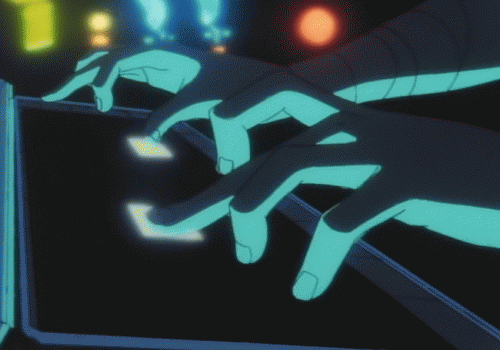Archive by Author
Wringing out water on the ISS
English 1A
Part of my degree means I get to complete a certain number of electives, units of my own choosing. For a Computing degree these are normally other Computing-relating units, such as more programming-based units, games-design/production related units, or even information systems units. But this semester, I decided to mix it up a little and do something entirely unrelated to computers and programming: I decided to do a first-year English unit.
I really had no idea what to expect besides a vague similarity to the English I did in high school many moons ago, and one of the first things I realised was how much different to Computing it all is. The environment, the tutorials, the assignments, everything is a lot different than what I’m used to back in the School of Computing and Information Systems.
Tutorials were the first real surprise. Computing units usually have very few females; that’s just how it is. There’s usually a few more women in information systems/business units, but yeah, other than that, no real women in technology units — enough words have already been written elsewhere about this so I’ll leave it at that, but showing up to a tutorial where the genders were split almost exactly down the middle? Totally not used to that.
And while we’re talking about tutorials, we might as well talk about the interaction at tutorials. In Computing units, because we’re all socially-inept nerds, no-one talks to other people they don’t know. There aren’t any introductions at the first tutorial, and everyone pretty much keeps to themselves; you know, the usual don’t-disturb-me-I-don’t-know-you type stuff. In English tutes, though, the first thing you do at the very first tutorial are icebreaker games.
I mean, talking to other people in my tutorial is one thing, but talking to other people when that “other person” has a high likelihood of being a person of the opposite sex? Might as well be asking me to do hard maths in front of everyone.
And the people that attend these tutorials are so different, too. It’s like they’re from a totally different world, a world where people do other things besides sit on computers all day long. A world where people actually read novels on a regular basis (something I’m struggling to do, even after I said I’d try).
I remember my first tutorial pretty well, just because of how different it was to every other tutorial I’ve ever had. I sat in between a guy and a girl, and during the first icebreaker task we were asked to talk to the person on our left. The guy happened to be first, and we chatted about what we ate for lunch and something about the unit which I don’t remember (but it was along the lines of how many assessment pieces there were, or something). That wasn’t so bad, but the next icebreaker task was talking to the person on the other side of us — once again, doing the usual introduction thing, telling each other our favourite book, and something else related to the unit. I ended up talking to a girl the second time around, but it’s the strangest thing: I can remember her name and how she was really pretty, but I cannot, for the life of me, remember what she said her favourite book was (although I know I hadn’t read nor heard of it before). I also remember she didn’t know who Matthew Reilly was, after telling her my favourite series was the Scarecrow series of books. Sadly, I’ve never seen her in the same tutorial again — she either moved to another tutorial class or dropped the unit entirely. If I ever meet her again, I’ll make sure to ask her what her favourite book is1.
Take the recent assignment as another example of how English differs from Computing. One of two major assessment pieces, our 1000-word poem explication due a few weeks ago was a foray into a world I was somewhat unfamiliar with. Of course I had written essays in high school english, but this was something entirely different. And back in high school, I did English Communications, not English Studies, the harder and more theory-based English unit. A poem explication, then, was a totally foreign concept.
Typing. Endless typing.
via The Verge.
DOGHOUSE | Things I Would Tell My Younger Self
So, you wanna be a photographer? →
A great illustrated explanation of what being a photographer means.
I see the word “professional” thrown around a lot when it comes to photography, and while I like getting paid for stuff I enjoy doing as much as the next guy, photography is somewhat unique in that it has enough mass appeal (and is now accessible and easy enough) for anyone to pick up a camera and start going for it.
Making money, though, and doing so sustainably, is another matter entirely.
— permalink to this post
